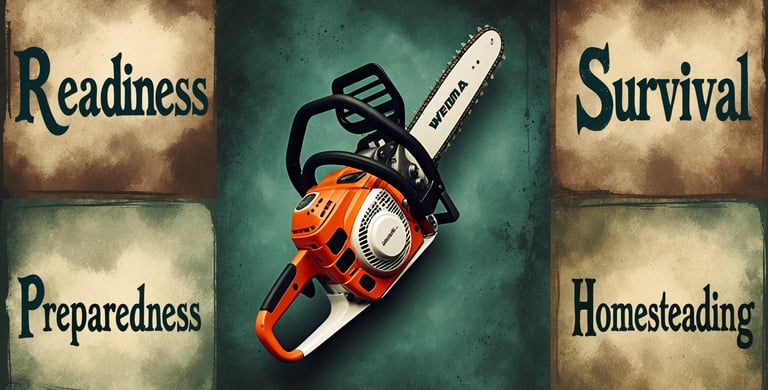Readiness: Communications and Contingency Protocols
Speak Clearly or Die in the Noise
4FORTITUDER - READINESS, SURVIVAL, PREPAREDNESS, HOMESTEADING
Readiness: Communications and Contingency Protocols
Speak Clearly or Die in the Noise
“If words are not clear, then what is said is not what is meant. If what is said is not what is meant, then what ought to be done remains undone.”
— Confucius
The Collapse of Clarity Is the Birth of Chaos
In crisis, silence isn’t peaceful. It’s lethal. A failed message—missed, misunderstood, or mistimed—can fracture a team, delay rescue, or cost lives. Communication isn’t just connection. It’s control.
And control isn’t shouting—it’s structure.
Eastern wisdom tells us that clarity is the foundation of harmony. Western doctrine teaches that a plan is only as strong as its worst line of transmission. When the grid fails, when the power cuts, when the signal drops—the prepared do not panic. They pivot. They execute their protocols.
Core Knowledge Foundation: Communication as a Survival Skill
Communication under pressure is a discipline, not a convenience. It includes both technical transmission (radio, message, signals) and tactical messaging (brevity, clarity, redundancy).
Foundational Elements:
PACE Plans: Primary, Alternate, Contingency, Emergency. Always have four methods.
Brevity Codes: Pre-agreed words or phrases with tactical meaning (e.g., “Icebox” = perimeter breached).
Call and Response: Every message ends with verification, not assumption.
Visual Signals: Lights, markers, hand signs—non-verbal backups when words fail.
Misconception Warning: Radios are not communication plans. They’re tools. Without protocols, they are just static in your pocket.
Advanced Insights: When Communication Is More Dangerous Than Silence
Historical Anchor: Operation Market Garden (1944)
Allied forces attempted a rapid assault through the Netherlands but were crippled by poor radio comms. Entire units were cut off, unable to report progress or request aid. What could’ve been a turning point in WWII became a catastrophe. Why? Because command trusted technology over redundancy.
In contrast, resistance cells across Europe used hand signals, dead drops, ciphers, and verbal protocols—primitive but functional. Their strength? Contingency and consistency.
Tactical Drill:
With your inner circle, create a 24-hour blackout drill:
Assume no phone, power, or vehicle.
How do you signal location, intent, or danger?
Roleplay delivery of critical info through layered channels (handwritten, in-person, visual marker).
Review what worked. Fortify what didn’t.
Critical Perspectives: Modern Tech Dependence and the Myth of Always-On
Adversarial Viewpoint:
“We live in a hyper-connected world. Redundant communication plans are paranoid. Just carry your phone and a backup battery.”
Response:
Systems fail. Towers go down. Batteries die. Grid-dependence is a fragility, not a luxury. In disaster, cell towers are jammed. In conflict, surveillance is real. Prepared men don’t assume signal—they build systems beneath it.
Wisdom and Warning Duality:
When Followed: You coordinate clearly, recover quickly, and retain cohesion in disorder.
When Ignored: You scatter, stall, and shout into the void—hoping someone, somewhere, answers.
Strategic Crossroad: Will you assume you'll always be heard—or build a way to be understood, even in silence?
Final Charge & Implementation
Brother, communication is not a luxury—it’s the nervous system of your survival. You must build it now, before you need it.
Start Now:
Build Your PACE Protocol
“Talk is cheap. Protocols save lives.” — Tactical Comms Advisor
For your team or family, define:Primary: Text, call
Alternate: Group app, encrypted chat
Contingency: Radio channel, neighborhood runner
Emergency: Pre-agreed rally point, signal item
Test Your Message Integrity
“Clarity under pressure is not natural. It is trained.” — Field Intel Doctrine
Run timed drills. Give short, critical messages. Have them relayed through three people. Observe degradation. Then train better.
Strategic Reflection:
If all power went down tonight—how would you check on your loved ones within the hour?
Existential Challenge:
When comms go dark, will your household wait for instructions—or will they already know what to do?
Build your signal while the air is still clear. When the sky turns red, your systems must already be in motion.
“In silence, the wise already move. In chaos, the prepared already know.”


